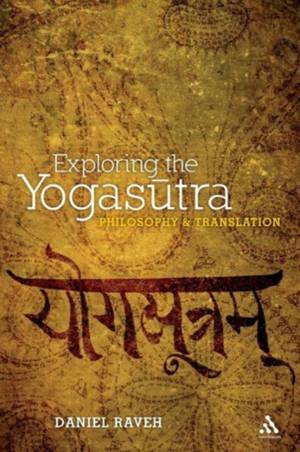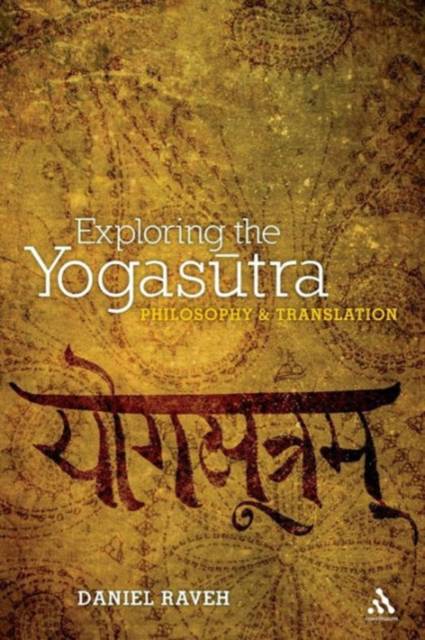
Door een staking bij bpost kan je online bestelling op dit moment iets langer onderweg zijn dan voorzien. Dringend iets nodig? Onze winkels ontvangen jou met open armen!
- Afhalen na 1 uur in een winkel met voorraad
- Gratis thuislevering in België vanaf € 30
- Ruim aanbod met 7 miljoen producten
Door een staking bij bpost kan je online bestelling op dit moment iets langer onderweg zijn dan voorzien. Dringend iets nodig? Onze winkels ontvangen jou met open armen!
- Afhalen na 1 uur in een winkel met voorraad
- Gratis thuislevering in België vanaf € 30
- Ruim aanbod met 7 miljoen producten
Zoeken
€ 81,45
+ 162 punten
Uitvoering
Omschrijving
Patañjali's Yogasutra is an ancient canonic Indian text composed in Sanskrit in the 3rd or 4th century. Belonging to a very different cultural milieu, this multi-layered text is philosophical, psychological and practical in nature. Offering a philosophical reading of Patañjali's Yogasutra, this book discusses themes such as freedom, self-identity, time and transcendence, and translation - between languages, cultures and eras. Drawing substantially upon contemporary Indian materials, it discusses for the first time classical yoga as reflected upon by Daya Krishna (1924-2007) with constant reference to Krishna Chandra Bhattacharyya's (1875-1949) studies in yoga philosophy. The genuine attempt on behalf of these two original thinkers to engage philosophically with Patañjala-yoga sets the tone of the textual exploration provided here. This book features a new annotated translation of the Yogasutra, and the author provides a useful background to the extensive Samkhya terminology employed by Patañjali. Daniel Raveh also offers a close reflection of the very act of translation, and the book concludes with suggestions for further reading and a glossary of central notions.
Specificaties
Betrokkenen
- Auteur(s):
- Uitgeverij:
Inhoud
- Aantal bladzijden:
- 184
- Taal:
- Engels
Eigenschappen
- Productcode (EAN):
- 9781441122124
- Verschijningsdatum:
- 10/05/2012
- Uitvoering:
- Paperback
- Formaat:
- Trade paperback (VS)
- Afmetingen:
- 155 mm x 231 mm
- Gewicht:
- 317 g

Alleen bij Standaard Boekhandel
+ 162 punten op je klantenkaart van Standaard Boekhandel
Beoordelingen
We publiceren alleen reviews die voldoen aan de voorwaarden voor reviews. Bekijk onze voorwaarden voor reviews.











